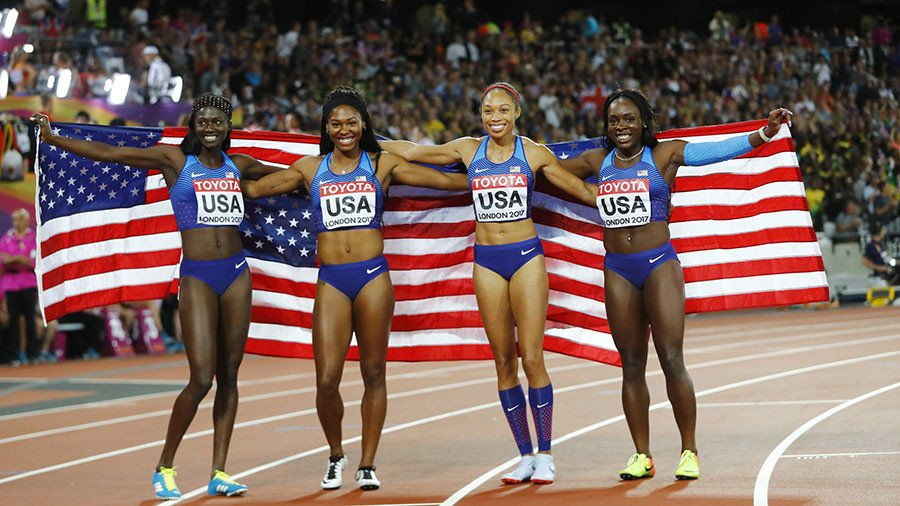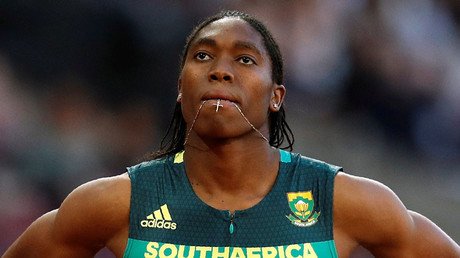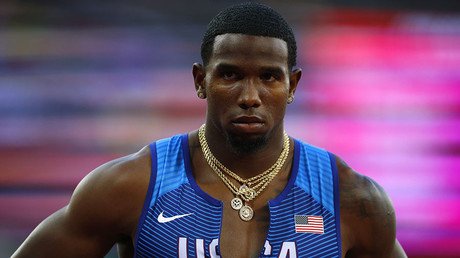‘Testosterone rule not implemented in sprint because it’s dominated by Americans’ – Spanish runner

Former Spanish hurdler Maria Jose Martinez-Patino said that the International Association of Athletics Federations (IAAF) doesn’t apply the testosterone-limit rule to sprint runners because of US dominance in the sport.
Martinez-Patino, who is also a professor at the University of Vigo and a member of the IOC medical committee, hailed the IAAF ruling to reduce blood-testosterone levels for female athletes, saying that the hormone could substantially enhance athletes’ performances. The former athlete was amazed, however, that the IAAF restriction covered only middle distances without affecting sprint events, where heightened testosterone can help to increase speed.
READ MORE: IAAF implements new testosterone limits for female athletes
“It is very clear that testosterone influences the performance, although I do not understand why the IAAF does not apply the rule to events where testosterone has the biggest influence – sprint distances,” Martinez-Patino told El Pais. “Maybe this is because top sprint runners are from the United States, and they [IAAF] fear their lawsuits.”
Martinez-Patino, who was disqualified from the Spanish Olympic squad in 1986 after failing the gender test, said that the prominent South African runner Caster Semenya should lower her testosterone level to be eligible to take part in international competitions.
“But I support the rule,” the professor said. “If I were in Semenya’s place and benefited from excessive levels of androgens, I would undergo medical treatment to respect the rules rather than quitting athletics.”
Semenya, who claimed two Olympic titles in the women’s 800m event at the 2012 and 2016 Summer Games, has a medical condition characterized by excessive levels of testosterone, which many pundits see as an unfair advantage over the rest of her rivals.
The newly adopted IAAF regulations require any female athlete who has a Difference of Sexual Development (DSD) to reduce blood testosterone level to below 5 nmol/L to be eligible to compete internationally.
The rule is obligatory for athletes competing in track events between 400m and 1,500m, while other track-and-field events where high-testosterone women could have advantage have remained unaffected by the newly-adopted guidelines.















